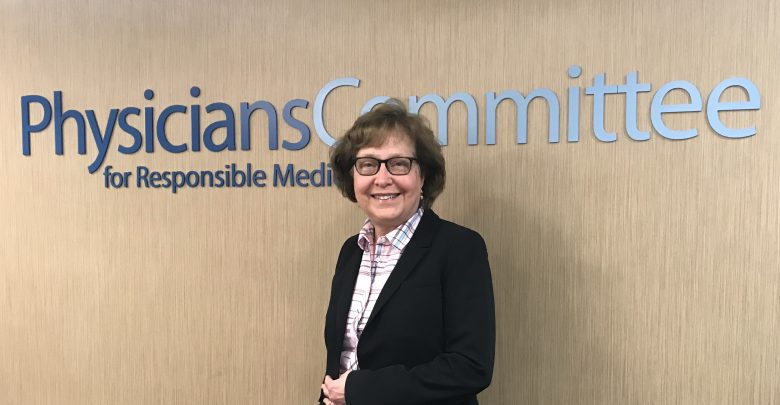
One morning in April of 2016, Betty woke to find her blood sugar had shot up over 500 during the night. As any other veteran diabetic would, she assumed the problem was with her pump set and quickly went about replacing her site before continuing on with her morning routine.
But it wasn’t much later that Betty started to feel a pain in her chest. She was aware that her heart health was not at its best. Her cholesterol and triglycerides had both been off the charts at her cardiologist appointment the year before and her job as a medical social worker for the elderly came with boatloads of stress.
It was these facts combined with the incessant chest pain and continuing high blood sugar that convinced her that she needed to get ahold of her cardiologist. Her doctor agreed that the situation sounded serious and Betty followed his instructions to take two aspirin and call 911.
But once at the hospital, the emergency room staff struggled to look past her diabetes and see her heart symptoms for what they really were. They were about to send her home with the simple instructions to “take better care of your diabetes” when another doctor intervened and had her sent to the PICU to be evaluated overnight.
The next morning, Betty got the news that she had indeed had a heart attack. In fact, she had a 90% blockage in her right artery and a 70% blockage in her left.
After having a stent put in, Betty was sent home with very little information on how to reduce her odds of suffering the often fatal second heart attack to which so many type 1 women succumb. Luckily, Betty’s neighbor had recently embarked on a vegan diet and Betty had already noticed that he was dropping weight and looking healthier.
She immediately approached her neighbor for advice on how to dramatically change her diet to get some control over her heart health. Her neighbor recommended that she visit the nearby Barnard Medical Center.
Learning to Reverse Heart Disease at Barnard
Barnard Medical Center — website — is a medical care facility located in Washington DC that was established by the nonprofit Physicians Committee for Responsible Medicine. Both the group and the facility emphasize nutrition-based treatments to help reverse conditions such as heart disease, type 2 diabetes, and high blood pressure.
While traditional medications and care are sometimes used, the focus is always on treating the cause of these symptoms rather than the symptoms themselves.
At Barnard, Betty learned about the possibility of reversing her heart disease using a diet that has been championed by heart specialists like Dr. Dean Ornish, Dr. Caldwell Esselstein, and Dr. Neal Barnard.
The focus of the Barnard diet is whole-food, plant-based nutrition with an emphasis on reducing fat, salt, and processed sugar.
The diet is the only one in the world that has consistently shown the ability to reverse heart disease in a wide range of patients with moderate to severe blockages.
But for Betty, the diet wasn’t just a way to improve her heart health. For the first time, she felt like she had the tools to truly take control of her diabetes and of her life.
Controlling What Seems Uncontrollable
Betty had spent her entire life with a condition she knew could likely kill her one day. She understood that diabetics, and diabetic women especially, are likely to suffer from heart disease and that many die from the condition. It was knowledge she accepted and because of that, she felt powerless to avoid it.
For most of her life, she had taken care of her diabetes but had never really put the energy she should have into her blood sugar management. Similarly, she took some steps to improve her heart health by trying to exercise and occasionally dabbling in diet trends. But she could never quite shake the idea that if heart disease and other complications of diabetes were inevitable, what was the point of trying?
Compounding this negative thought process was the fact that Betty was incapable of putting herself first. Her patients, many of them also suffering from the complications of diabetes and heart disease, were always her number one priority. And that meant that self-care always took a back seat and stress levels ran high.
It wasn’t until her time at the Barnard Center that Betty realized the complications of diabetes don’t have to be a given.
Instead, it is possible to take control of your life by putting yourself first and making changes that will help you feel better and live healthier.
Life After Heart Disease
In the four years since her heart attack, Betty has become a huge proponent for the transformative power of the plant-based diet.
She volunteers as a community advocate for the Barnard Center and has helped many others use the diet to improve their conditions, including her own husband who suffers from kidney disease.
While she has encountered some resistance from others who find it too difficult to imagine giving up their favorite meats and cheeses, it is hard for Betty to deny the proof. After just nine months on the plant-based diet, her cholesterol dropped from 257 to 115 and her triglycerides dropped from 154 to 94.
And now, after four years of eating the Barnard vegan diet, Betty continues to thrive. She has more energy than ever, has dropped to a healthier weight, and, for the first time in her life, has achieved an A1C below 7.
Despite all of her personal success, Betty says she tries very hard not to be “preachy” about how people should eat or choose to live. She believes very strongly in the power of this diet to reduce inflammation and influence heart health, but she knows you can’t force anyone to make changes if they aren’t ready.
But for those out there who are prepared to take the steps necessary to achieve better heart health and control over their diabetes, she can’t stress enough the importance of getting support to help with this kind of transition. For Betty, the support she got from Barnard as well as the community empowerment she received from others during cardiac rehab, all helped her find success with this new way of life.
Whether you are ready to make changes right now or are still struggling to see your way past diabetes, Betty says there is one thing that always remains true:
You do have control over your life.
If you can keep this one quintessential truth at the forefront of your thought process then there is nothing diabetes can stop you from achieving.







